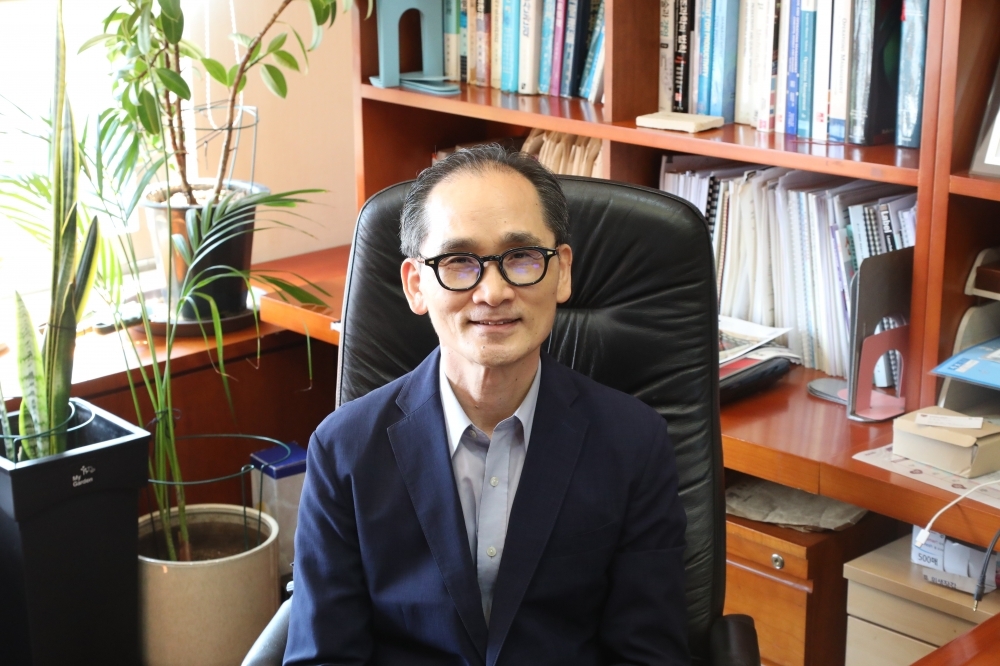News
KUBS News
Interview with SK Research Award-Winning Professor – Professor Kwangtae Park

In 2025, Professor Kwangtae Park of Korea University Business School co-authored a paper titled “Protecting Workers from Rude Customers to Enhance Organizational Identification in Emotional Labor Environments: A Study with Call Center Agents,” which was accepted for publication in the international journal Production and Operations Management and selected as the winner of the SK Research Award.
This study empirically analyzed how dealing with rude customers in emotionally demanding call center environments induces emotional dissonance among workers and thereby undermines their organizational identification.
In particular, the study demonstrated that customer protection policies and supervisors’ servant leadership act as key moderating factors that mitigate these negative effects. It highlighted that institutional support and leadership at the organizational level play a vital role in sustaining employees’ organizational commitment.
The research was highly acclaimed not only for its academic contribution but also for providing practical insights into sustainable human resource management, offering valuable policy implications that extend beyond academia.
Q1. First of all, congratulations on receiving the SK Award. How do you feel about this recognition?
A1. Thank you. I am very pleased and honored that this study has been recognized for making a meaningful contribution to both practice and academia. I feel especially gratified that it offers insights which can genuinely help alleviate the challenges faced by frontline workers in emotionally demanding environments such as call centers.
Q2. Could you briefly introduce your award-winning research?
A2. This study is an empirical examination of how rude customer behavior in emotionally demanding environments—particularly call centers—affects workers’ organizational identification (OID). It demonstrated that customer protection policies and supervisors’ servant leadership help alleviate workers’ emotional dissonance and, in turn, sustain their organizational identification.
Q3. What motivated you to begin this research?
A3. The study was inspired by the first author’s first-hand experience working in a call center. The industry tends to focus on efficiency-focused technical approaches while paying relatively little attention to the fundamental issue of emotional labor. In Korea in particular, despite legislative progress, on-the-ground implementation often falls short. This gap between nominal protection policies and their actual execution—what we call “decoupling”—ultimately motivated us to conduct this research.
Q4. How do you think your research findings could impact society and industry?
A4. Beyond its academic contribution, this research highlights the importance of improving practical policies and strengthening leadership training to better protect employees engaged in emotional labor. We believe that when companies implement such protection policies genuinely—not merely to meet legal requirements—these efforts can enhance organizational identification and employee retention, providing meaningful implications for the industry as a whole.
Q5. Could you share your future research plans or topics of particular interest?
A5. In the future, we plan to conduct comparative research examining how emotional labor environments in other industries (e.g., hospitals, finance, retail) influence organizational performance. In particular, exploring how AI-based customer service systems are transforming employees’ emotional labor would be an especially intriguing avenue of research.
Q6. What message would you like to share with students?
A6. Research is not just about testing theories; it begins with asking meaningful questions about real-world problems. Even small inconveniences or curiosities in your daily life can become excellent research topics. I encourage you to pursue research that is alive and closely connected to practice.
The following is a summary of Professor Park Kwangtae’s paper.
"Protecting Workers from Rude Customers to Enhance Organizational Identification in Emotional Labor Environments: A Study with Call Center Agents"
This study empirically examined how emotional dissonance—the gap between genuine feelings and the emotional display required by the organization—arising when call center employees deal with rude customers, undermines their organizational identification (OID). Over time, such dissonance erodes employees’ sense of belonging and engagement.
The study also examined two moderating factors: employees’ perception of customer protection policies and supervisors’ servant leadership. The findings indicated that employees who perceived customer protection policies as genuinely enforced experienced less negative impact from emotional dissonance, and those working under supervisors who practiced servant leadership maintained higher levels of OID. Notably, for long-tenured employees—who are more susceptible to accumulating emotional dissonance—effective enforcement of protection policies could still mitigate these adverse effects.
Overall, this research empirically demonstrated that institutional support at the organizational level and human-centered leadership are critical in maintaining and strengthening workers’ organizational identification in emotionally demanding environments.


